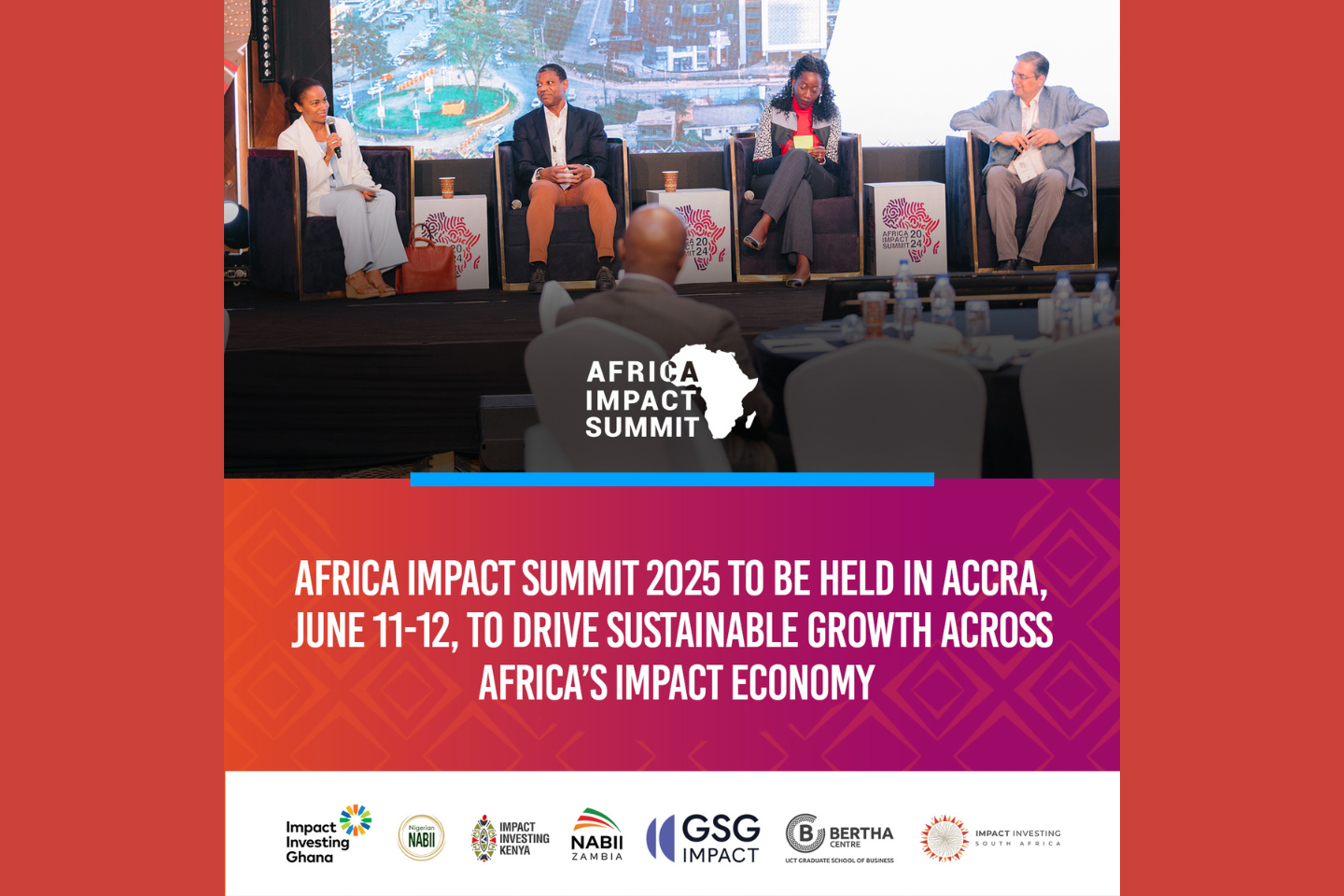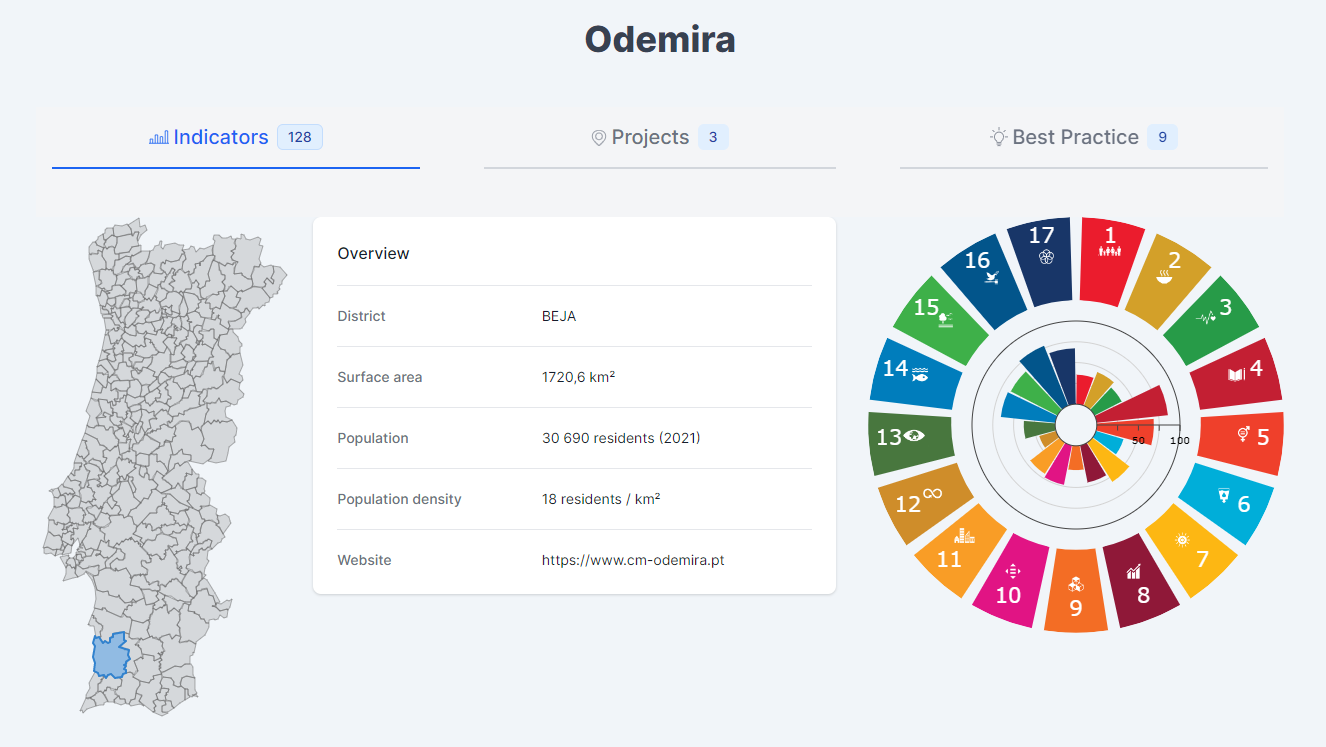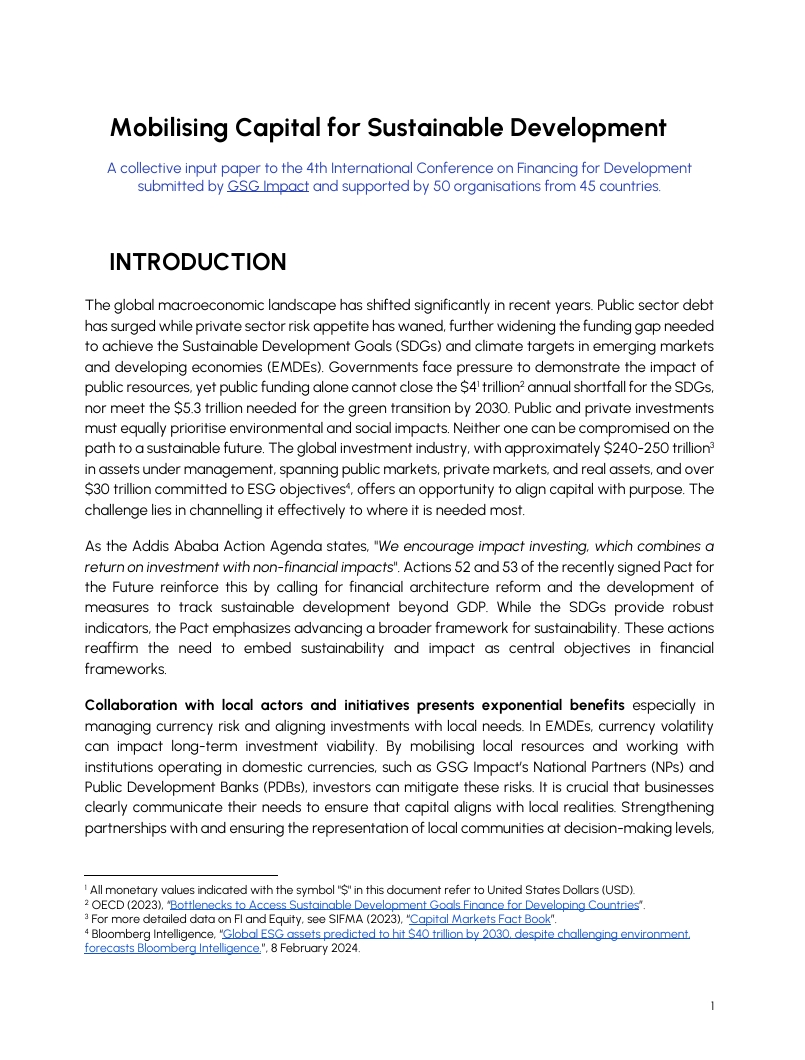
Municipal-level Strategies for SDG-driven Innovation
In April, UN Deputy Secretary-General Amina Mohamed warned that the Sustainable Development Goals (SDGs) are “slipping from our grasp.”
With only seven years left to achieve the SDGs, municipalities are at the forefront of efforts to keep the SDGs top of mind in the urban agenda. According to research by the OECD, approximately 105 of the 169 SDG targets – over 60% – will only be reached if local and regional governments are actively engaged, as these governments are responsible for 55% of public investment and 37% of public expenditure across OECD countries. They also have significant sway over policies that are central to sustainable development and people’s well-being – from water to housing, transport, infrastructure, land use and climate change, amongst others. With 2.5 billion more people projected to be living in cities by 2050, action by municipalities today is key in determining the conditions in which many of us will live tomorrow.
A recent mapping study (forthcoming in Q3 2023) conducted by the Consortium on SDG-driven Tech Innovation Ecosystems, which GSG Impact co-leads together with National Partners from Israel, Portugal, France, and Italy, highlights a few great examples of municipal initiatives that are contributing to SDG-driven innovation in their respective countries.
This blog features three examples:
- MIND Milano Innovation District: A geographical cluster for SDG-aligned innovation and economic development (Italy);
- The Open Data Policy for Sustainable Innovation, Vilnius (Lithuania);
- SDGLocal: A municipal platform for the SDGs (Portugal).
As these examples illustrate, public and private partnerships are at the heart of creating sustainable and innovative cities (SDGs 11 & 17). Cities are at their best when they serve as a platform for cross-sector collaboration in pursuit of solutions to local challenges, and as a platform for measurement, knowledge sharing, transparency and accountability.
MIND Milano Innovation District: An ‘innovation geographical cluster’ for SDG-aligned innovation and economic development
‘Innovation geographical clusters’ are government-led initiatives aimed at fostering innovation and economic growth. They are delivered as national and municipal/regional strategies that foster cross-sector partnerships and knowledge transfer among different actors – including corporates, VCs, start-ups, social enterprises, universities, and more. Through these comprehensive strategies, governments provide incentives and opportunities for companies, research institutions, and other supporting organisations to do business and hold activities in specific geographic locations, especially in underdeveloped areas.
The MIND Milano Innovation District in Italy is a great example of an innovation geographical cluster that is focused on developing, commercialising, and scaling solutions in the domains of health-tech (SDG 3), environmental sustainability (SDG 13), digitalisation (SDG 9), and being a city of the future (SDG 11). As part of the legacy of EXPO 2015 in Milan, the Italian government launched the MIND project to create a new district dedicated to innovation and sustainability. Through its partnerships with public and private entities, including universities, research institutes, and multinational corporations, MIND brings together expertise, resources, and funding to support research and development projects in life sciences, data science, and genomics.
Currently, MIND is home to various corporates, start-ups, research labs, mixed-use real estate, garden and garden park space, and hospitals. With both private and public sector investments, the estimated value of MIND stands at €4 billion. With the aim of a city for the environment; well-being; and social impact, the MIND ecosystem generates a physical and digital space for dialogue and inclusion and fosters collaborations between stakeholders in multiple industries.
The Open Data Policy for Sustainable Innovation, Vilnius
Vilnius, the capital city of Lithuania, is a city known for technological and digital innovation and a tech-oriented business ecosystem. With a 2022/23 award for the European Cities of the Future, (a ranking by fDi Intelligence, a specialist division of the Financial Times), the city of Vilnius is working on advancing sustainability and addressing SDG-related local challenges through innovation. It is estimated that around 1.5 million EUR of its overall 5 million EUR annual budget – 30% – tackles SDG-related issues, with specific strategies for digitalisation (SDG 9) and climate-neutral city (SDGs 11 & 13).
But it’s not only Vilnius’ goals and financing that make this city stand out. One of the key facets of the city’s efforts is its commitment to open data that makes information about the city more easily accessible. For instance, the city provides an open data portal and a 3D map of the city on a range of topics such as waste management, traffic flows, and property. This has enabled third parties to develop shared mobility solutions and innovative tools for real estate developers, among others, that make life more convenient for the residents of Vilnius while contributing to the establishment of a smart and sustainable city.
SDGLocal: A municipal platform for the SDGs
To foster SDG-driven innovation ecosystems, we need more transparency and accountability around progress toward achieving the SDGs. This is best done through tools and platforms that enable impact measurement management. In this regard, Portugal’s SDGLocal platform serves as a promising model for replication among municipal-level SDG platforms looking to stay accountable to their constituents on one hand, and clear about progress achieved, on the other.
Launched in 2019 as a joint initiative of several institutions, the National Council for Environment and Sustainable Development (CNADS) and the University of Lisbon’s Institute of Social Sciences (OBSERVA), the SDGLocal Platform is an online portal that allows the visualisation and monitoring of the contributions and progress of each municipality in relation to the SDGs. The platform maps over 600 projects and good practices by municipalities, providing information on their progress towards meeting defined targets. The platform has attracted the participation of 28% of Portuguese municipalities. Partners aim to expand the initiative to 120 municipalities, doubling the number of projects and initiatives mapped by the end of 2023.
In addition to platform management, SDGLocal promotes several complementary initiatives, including an annual conference, awards, certification programs, capacity-building and training programs, and support for municipalities in developing local SDG-aligned strategies. The platform provides an opportunity for municipalities to report and communicate effectively on their contribution and progress towards the SDGs and expand partnerships to address local challenges, thus unlocking the potential for local Portuguese communities to contribute to solving global problems.









